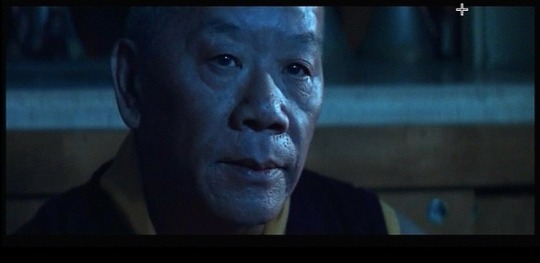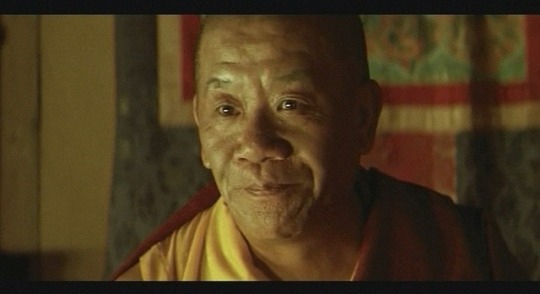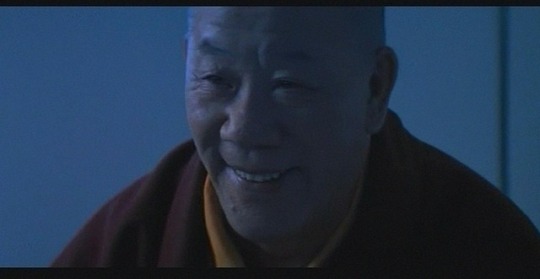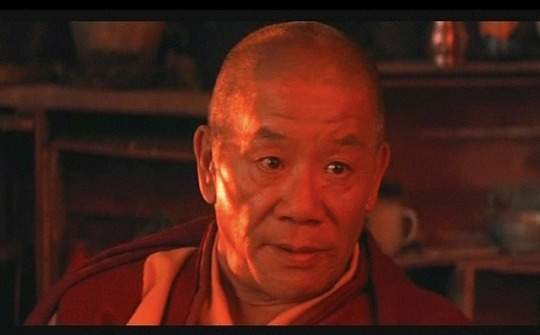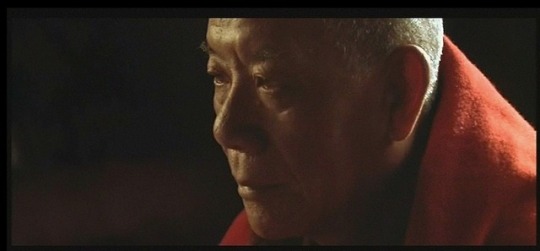#ying ruocheng
Text
Blu-ray review: “Little Buddha” (1993)
“Little Buddha” (1993)
Drama
Running Time: 140 minutes
Written by: Rudy Wurlitzer and Mark Peploe
Directed by: Bernardo Bertolucci
Featuring: Keanu Reeves, Chris Isaak, Bridget Fonda, Alex Wiesendanger and Ying Ruocheng
Jesse Conrad: “Were you sleeping lama?”
Lama Norbu: “No, I was meditating.”
Jesse Conrad: “What’s meditating?”
Lama Norbu: “It is being totally quiet and relaxed,…
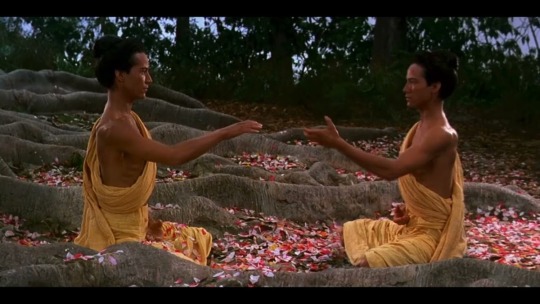
View On WordPress
#Bernardo Bertolucci#bluray#bluray review#Bridget Fonda#Chris Isaak#keanu reeves#Little Buddha#Little Buddha bluray#Ying Ruocheng
6 notes
·
View notes
Text
O Último Imperador (THE LAST EMPEROR, 1987)
Após uma tentativa frustrada de suicídio um pobre proletário vê sua vida passar diante de seus olhos desde sua infância como imperador até se tornar um jardineiro comunista!
youtube
#80s kids#cinema#nostalgia#retro#youtube#cult#biografia#john lone#peter o'toole#joan chen#victor wong#vivian wu#richard vuu#ying ruocheng#imperador
1 note
·
View note
Text
ok it's time for my Official Jiang Cheng Ship Opinions Post. buckle in this is gonna take a bit
Xicheng: I like it in 1 extremely specific circumstance (bonding over very similar experiences post-canon) but I've only seen that done well like. twice. NEEDS to have good characterization (also rare unfortunately) and take into account what they can and can't do as their own sect leaders with regards to courtship/marriage.
Chengqing: perfect in every way. that's it that's all I need to say.
Sangcheng: ehhhhh? Cute in Cloud Recesses summer camp era, not feasible post-canon due to irreconcilable differences in worldview and how much danger it's acceptable to put Jin Ling in.
Zhancheng: honestly I prefer this to be platonic. Hatefucking is not my jam and LWJ is Wei-Ying-sexual in canon anyway. Give Jiang Cheng a friend who is as weirdly obsessed with Wei Wuxian as he is but in a slightly different way. I want to see them coming to terms with that.
Ningcheng: again, someone just as weirdly obsessed with Wei Wuxian, but a little to the left. I don't think either one of them is ever going to look at the other and not see "the guy WWX likes better than me." Maybe someday they'll form a relationship that isn't based entirely around Wei Wuxian, but it seems kind of unlikely.
Chengyao: I'm actually coming around to this a bit recently? Again, it really needs to keep good characterization at the forefront and consider their positions as individual sect leaders, and remember that their "divorced couple energy" is part of the Guanyin Temple shitshow and not the way they would usually behave, especially for Jin Ling's sake. I want to see more fics where Meng Yao grows up with the Jiang sect so that Jiang Cheng is attached to him from the very beginning.
Mingcheng: meh. I don't really think about this ship that much because it honestly doesn't compel me at all. sorry to the mingcheng enjoyers it there I simply do not get it
Chengxuan: same as above, I don't really get this one. Their dynamic is just not that interesting to me.
Chengyi: that is a child. hard no on this one.
Miancheng: kinda cute? I like it when Jiang Cheng recruits her into the Jiang after she gives up on the Jin, it's a fun idea, but I think I like them better as friends.
Ruocheng: no. just no.
Zhucheng (chengliu? Wen Zhuliu and JC): also no.
Chengsu: I could get behind the idea of JGY desperately contacting Jiang Cheng and being like "help I just found out my fiancee is my sister can you please pretend you've been in love with her all this time and get married to her instead??? I'll negotiate to get you more Jin Ling rights if you do." she fits JC's list of desirable qualities in a wife. unfortunately she gets like 6 seconds of screen time and then dies so we really don't know very much about her, which makes it a bit hard to form a strong opinion on the ship
Other Chengsu? Sucheng/Mincheng/Chengshan/whatever this is: I actually think it's interesting that Su She and Jiang Cheng share the trait of "treat them nicely within this narrow window of time in their life in order to get them to become loyal to you forever, otherwise fuck you." It's possible that if Su She had grown up with the Jiang the two of them would have found some common ground and maybe become friends. I'm more interested in non-romantic interactions here
Cheng...yang? what do you call the Xue Yang/Jiang Cheng ship? Xuecheng? idk. again, not really my jam.
Chengjiao. Lingcheng? Jiang Cheng/Wang Lingjiao. Do people even ship this? I could see it as character development for her I guess. At this point I'm just fishing for possible pairings.
and finally, saved for last...
Xiancheng: this isn't romantic or sexual or platonic, it's all three and also a secret fourth thing that's more intense than all of them put together. As a ship, I don't prefer it, because it's too easy to flatten it out into either a boring cutesy fluffy cliche or a boring jealous/possessive boyfriend type thing. I need to see them being weird about each other in a way that no one can possibly identify, especially themselves. They'll die for each other. They'll live for each other. They'll destroy themselves and be happy about it as long as they believe that the other is going to be okay. You really can't make it as simple as "yeah these two want to fuck."
#jiang cheng#shipping#time for the jiang cheng/wang lingjiao crackship of all time. god i can't even imagine
20 notes
·
View notes
Link
#bernardo bertolucci#1993#united kingdom#france#lichenstein#drama#child#keanu reeves#religion#bridget fonda
4 notes
·
View notes
Text
Assistir Filme O Pequeno Buda Online fácil
Assistir Filme O Pequeno Buda Online Fácil é só aqui: https://filmesonlinefacil.com/filme/o-pequeno-buda/
O Pequeno Buda - Filmes Online Fácil
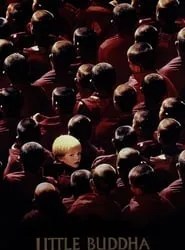
Seattle. Um dia, ao voltar para casa, o arquiteto Dean Conrad (Chris Isaak) encontra dois monges budistas tibetanos, Lama Norbu (Ruocheng Ying) e Kenpo Tensin (Sogyal Rinpoche), sentados na sua sala de estar, conversando com Lisa (Bridget Fonda), sua esposa. Guiados por vários sonhos perturbadores, os monges viajaram do Nepal até Seattle pois acreditam que um garoto de 10 anos, Jesse (Alex Wiesendanger), o filho de Dean, possa ser a reencarnação de Lama Dorje (Geshe Tsultim Gyelsen), um lendário e místico budista. Inicialmente Dean e Lisa ficam céticos, especialmente quando os monges manifestam interesse em levar Jesse para o Butão, na intenção de comprovar ou não se ele é a reencarnação de Lama Dorje. Porém após o suicídio de Even, um sócio de Dean, este muda de idéis. Após deixar Lisa nos Estados Unidos, Dean viaja com o filho para o Butão.
0 notes
Text
O Último Imperador (1987)
The Last Emperor
Direção: Bernardo Bertolucci;
Roteiro: Mark Peploe e Bernardo Bertolucci; com a colaboração inicial de Enzo Ungari;
Gênero: Biografia; Drama; História;
País: Reino Unido, França e Itália.
A principal repreensão que comumente recai sobre este grandiloquente épico de Bernardo Bertolucci diz respeito à predominância do idioma inglês numa narrativa que refere-se a um período relativamente próximo da História Chinesa. Este pormenor, no entanto, desmerece muito pouco - ou quase nada - a obra-prima cuidadosamente construída com que Bertolucci nos brinda em O Último Imperador, premiado com sete estatuetas da Academia. O drama expõe-nos à história de Pu Yi, o último imperador chinês que assumiu o trono quando contava apenas com menos de dois anos de idade. Valendo-se de uma direção de arte magnífica, Bertolucci adentra privilegiadamente os espaços proibidos da Cidade Proibida, cedendo-nos uma vista particular do cotidiano imperial.
A narrativa memorialista da trajetória de Pu Yi tem início em 1950, a partir de suas reminiscências numa prisão do Exército Vermelho, onde cumpre pena acusado de contra-revolucionismo. Instado pela condição do cárcere, o homem que outrora fora imperador reflete sobre seu passado ao mesmo tempo em que exigem dele uma confissão formalizada de seus crimes. Apesar da grandiloquência épica, este filme de Bertolucci versa sobre a privação da liberdade humana centrando-se na trajetória trágica deste indivíduo: sequestrado do seio de sua mãe para tornar-se imperador aos dois anos e dez meses de vida, fora prisioneiro dos costumes e das restrições imperais no período em efetivamente fora imperador (entre 1908 e 1912, quando foi forçado a abdicar em função da Revolução Chinesa que proclamava a República); posteriormente subjugou-se ao Japão no período em que liderara o estado-fantoche de Manchukuo, motivo pelo qual foi designado inimigo da República Popular da China. Sua absolvição formal acontece em 1959, quando é libertado da prisão do Exército Vermelho, após ter confessado seus crimes e se reeducado ideologicamente. Transferindo-se para Pequim, trabalha como jardineiro enquanto assiste com perplexidade à dissolução moral do maoismo.
O apuro técnico, narrativo e artístico que configuram este drama histórico apresenta-se impecavelmente durante as quase quatro horas (Director’s Cut) de exibição da película. Que, apesar da longa duração, não é de modo algum fatigante.
⭐ 4.5 / 5.0
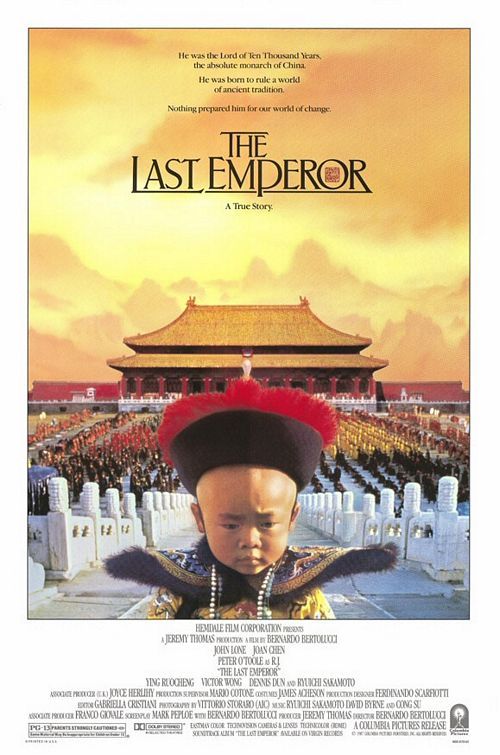
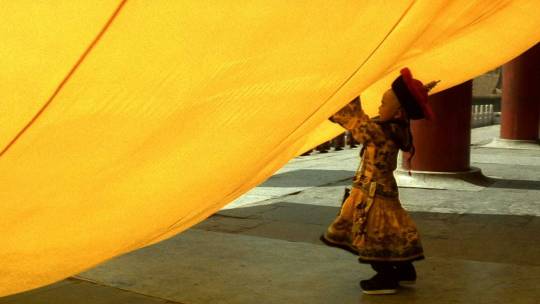


#Filme#Movie#Biografia#Drama#História#Biography Movie#Drama Movie#History Movie#O Último Imperador#The Last Emperor#Bernardo Bertolucci#John Lone#Joan Chen#Peter O'Toole#Ying Ruocheng#Victor Wong#Dennis Dun#Ryuichi Sakamoto
9 notes
·
View notes
Video
undefined
tumblr
Climbing a Tower by Wang Zihuan, recited by Ying Ruocheng
White sun sinks into the mountains
Yellow river flows into the sea
Desiring a thousand-mile view
Climb one storey further
5 notes
·
View notes
Photo
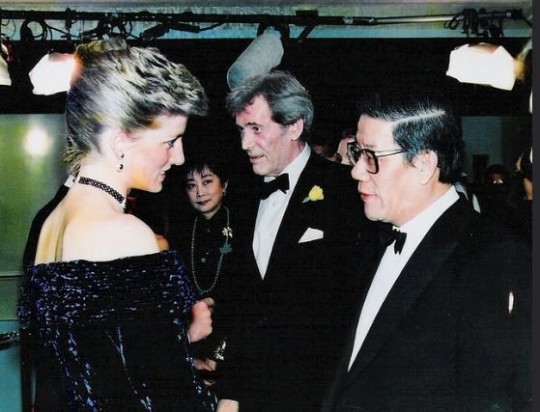
Diana, Princess of Wales , Ying Ruocheng, Lisa Lu (Lu Yan)
and Peter O'Toole
at the premiere of the film “The Last Emperor” in England
The Last Emperor (1987)
directed by Bernardo Bertolucci
Peter O'Toole
as Reginald Johnston,
the tutor of Puyi, the last emperor of China
Lisa Lu (Lu Yan)
as Tzu Hsui
Ying Ruocheng
as The Governor
#peter o'toole#diana#princess of wales#ying ruocheng#lisa lu#the last emperor#premiere#premiere of the last emperor#repost
3 notes
·
View notes
Photo
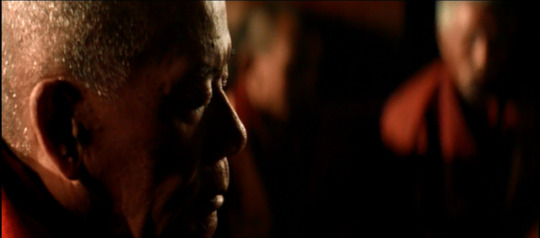
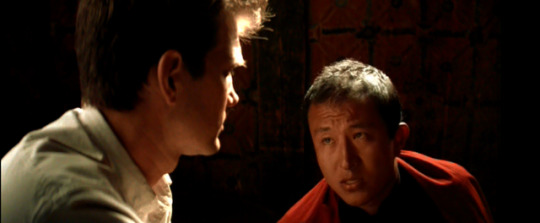
Dean Conrad: He's dying. Champa: We are all of us dying every minute. Death is a big part of life. Every breath that we breathe, we die. Dean Conrad: What about his passion for life? What about the people he's leaving behind? Champa: He will come back. Dean Conrad: I don't know if I believe it, but I'd like to.
1 note
·
View note
Photo
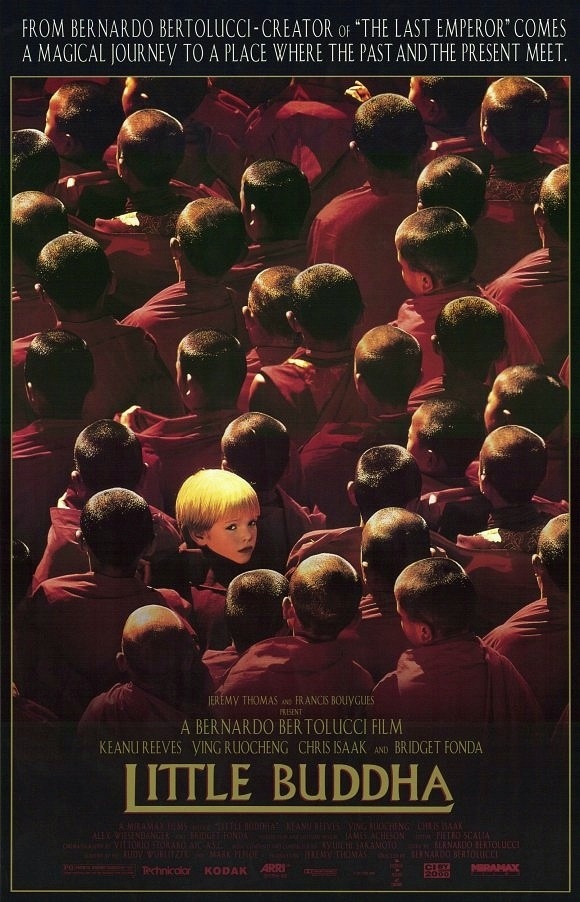
Little Buddha (1993)
by Bernardo Bertolucci
Drame
130 mn - Italie / France / Lichtenstein / Royaume-Uni
youtube

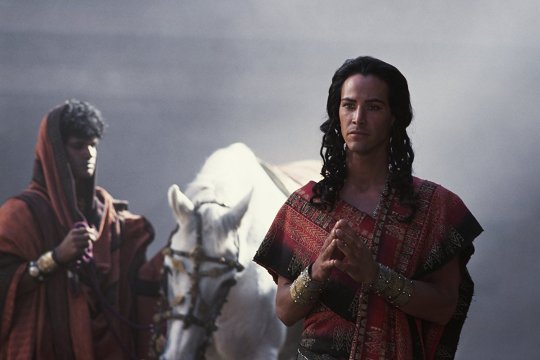
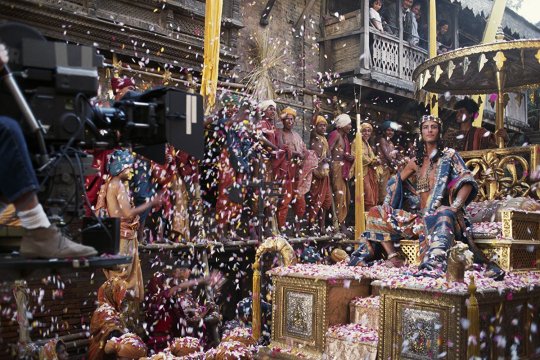
#1993#bernardo bertolucci#drama#biopic#italy#england#vittorio storaro#ryuichi sakamoto#jeremy thomas#90s#keanu reeves#chris isaak#bridget fonda#mark peploe#rudy wurlitzer#ying ruocheng
0 notes
Photo
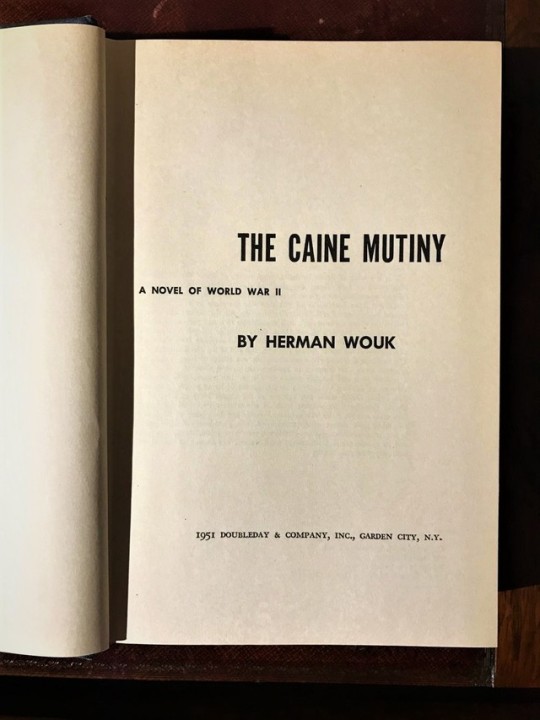
The Caine Mutiny is the 1951 Pulitzer Prize–winning novel by Herman Wouk. The novel grew out of Wouk's personal experiences aboard a destroyer-minesweeper in the Pacific Theater in World War II. Among its themes, it deals with the moral and ethical decisions made at sea by ship captains. The mutiny of the title is legalistic, not violent, and takes place during Typhoon Cobra, in December 1944. The court-martial that results provides the dramatic climax to the plot.
Wouk himself served during World War II aboard two destroyer-minesweepers converted from World War I-era Clemson-class destroyers, USS Zane being the first and USS Southard being the second. (Wouk uses the latter name for one of his characters in the novel, Captain Randolph Patterson Southard. In an allusion to history professor Jacques Barzun of his alma mater, Columbia University, Wouk also has Queeg refer to a previous assignment he had on a ship named Barzun.)
USS Caine is a fictional depiction of a DMS (destroyer-minesweeper) conversion. The Clemson class was named for Midshipman Henry A. Clemson, lost at sea on 8 December 1846 during the Mexican war, when the brig USS Somers capsized off Vera Cruz in a sudden squall while chasing a blockade runner. In November 1842 Somers was the scene of the only recorded conspiracy to mutiny in U.S. Naval history when three members of the crew—a midshipman, a boatswain's mate, and a seaman—were clapped in irons and subsequently hanged for planning a takeover of the vessel.
Many of the incidents and plot details are autobiographical. Like both Keefer and Willie, Wouk rose through the ship's wardroom of Zane from assistant communications officer to first lieutenant, and then was executive officer of Southard, recommended to captain the ship home to the United States at the end of the war before it was beached at Okinawa in a typhoon.
The Caine Mutiny reached the top of the New York Times best seller list on August 12, 1951, after 17 weeks on the list, replacing From Here to Eternity. It remained atop the list for 33 weeks until March 30, 1952, when it was replaced by My Cousin Rachel. It moved back to first place on May 25, 1952, and remained another 15 weeks, before being supplanted by The Silver Chalice, and last appeared on August 23, 1953, after 122 weeks on the list.
In 1954 Columbia Pictures released the film The Caine Mutiny starring Humphrey Bogart as Queeg in a widely acclaimed performance that earned him the third and final Academy Award nomination of his career.
After the novel's success, Wouk adapted the court-martial sequence into a full-length, two-act Broadway play, The Caine Mutiny Court Martial. Directed by Charles Laughton, it was a success on the stage in 1954, opening five months before the release of the film and starring Lloyd Nolan as Queeg, John Hodiak as Maryk, and Henry Fonda as Greenwald. It has been revived twice on Broadway, and was presented on television live in 1955, and in 1988 as a made-for-television film.
The stage script was translated into Chinese in 1988 by Ying Ruocheng, a famous Chinese actor, director, playwright and Vice Minister of Culture. At Ying's invitation, Charlton Heston directed the translated play in a successful run at the Beijing People's Art Theatre, opening on October 18, 1988. The play was revived in 2006, again under Heston, and has been revived there twice more (2009, 2012) since his death.
Time magazine called “The Caine Mutiny,” which sold more than 5 million copies worldwide and was translated into 17 languages, the “biggest U.S. bestseller since ‘Gone With the Wind.’ ”
Daily inspiration. Discover more photos at http://justforbooks.tumblr.com
9 notes
·
View notes
Photo

Diana, Princess of Wales , Ying Ruocheng, Lisa Lu (Lu Yan)
and Peter O'Toole
at the premiere of the film “The Last Emperor” in England
The Last Emperor (1987)
directed by Bernardo Bertolucci
Peter O'Toole
as Reginald Johnston,
the tutor of Puyi, the last emperor of China
Lisa Lu (Lu Yan)
as Tzu Hsui
Ying Ruocheng
as The Governor
#peter o'toole#diana#princess of wales#ying ruocheng#lisa lu#the last emperor#premiere of the last emperor#premiere
9 notes
·
View notes
